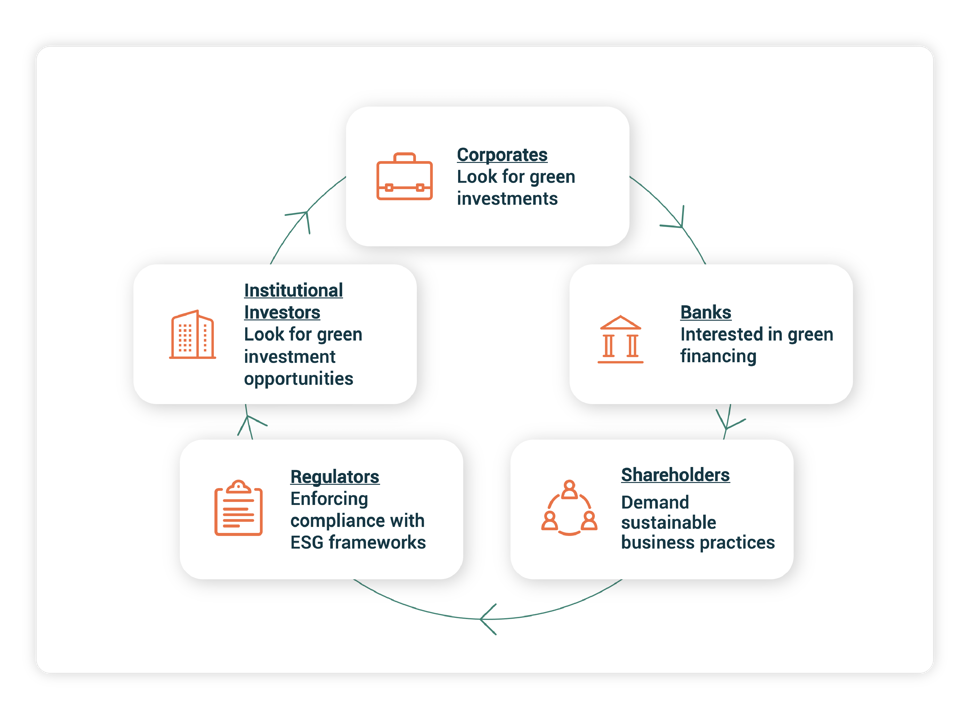World Earth Day asks us to ‘invest in our planet’ – so what does that mean for maritime?

The latest Intergovernmental Panel on Climate Change (IPCC) report calls for urgent action on the climate front, saying greenhouse gas emissions need to peak by 2025 to limit global warming to 1.5°C.
And now here we are on World Earth Day 2022. The theme ‘invest in our planet’ is a clever one, with a dual implication. On one hand it calls for greater moral investment on an individual level, by describing the sustainable and environmentally friendly behaviours that we can all adopt. On the other, it invokes the meaningful and substantial financial investment required to combat climate change and tackle environmental damage.
In my earlier roles in the banking sector, I had first-hand insight into the financial implications of incorporating and establishing sustainable practices in lending and investing to sectors with deficient ESG practices. Now, as RightShip’s ESG Manager, I’m here to support others to understand the tangible steps they can take towards sustainability.
Totting up the tab
It is widely agreed that the maritime sector is responsible for around 2% to 3% of global emissions, and there are several studies estimating the cost of decarbonising shipping.
Of course, one can reasonably assume that the cost of developing and implementing energy-efficient technologies in maritime will normalise as adoption is scaled up, similar to what we have seen in sectors like renewable energy¹, where falling costs have allowed solar power to compete with traditional fossil fuels². However, this is still many years away.
So, the big question…how much is the maritime industry going to have to invest to decarbonise, and what will accessing such financing involve?
A study from BCG³ shows that in addition to US$300bn that leading financiers provide to shipping every year, a further US$1.7 trillion will be required until 2050 to develop future fuels. And from EDF financial analysis⁴ we find that US$6 trillion investment (2020-2050) in green ammonia and renewable energy plants will be needed to decarbonise just 40% of shipping by 2050.
These large numbers indicate the hugely important role that financing will play in funding sustainable shipping.
Meanwhile, we still need to know what the current connections are between financing and ESG considerations in maritime - and where RightShip comes into the picture.

In the UK, an announcement from the Task Force on Climate-related Financial Disclosure (TCFD) earlier this month now means that more than 1,300 large UK corporations with more than 500 employees and greater than £500m in annual turnover are obliged to disclose and report climate-related financial information.
Widely applicable across all sectors and jurisdictions, climate risk at every level of business must now be disclosed, from governance to strategy, risk management to metrics and targets. These new disclosures will also be incredibly important to the global investors that support them, and Boards will be held to account for the role they play in managing their organisation’s response to the climate crisis.
This of course, from a practical point of view, may include looking at the Scope 3 emissions of their organisations - if they aren’t already - a task that RightShip’s Carbon Accounting tool can effectively address. But it also sets a wider precursor for others. Where organisations like Aviva, Barclays, London Stock Exchange Group and our own shareholder BHP lead in disclosing, others will surely have to follow.
The same is true for the maritime industry. Banks and financial institutions will begin to measure whether portfolios are aligned to International Maritime Organization climate goals or United Nations Sustainable Development Goals, which cover emissions control and crew welfare, as well as transparent and accountable governance.
The ESG assessment of shipping portfolios will become intrinsic to gaining the financial support required to decarbonise shipping using green fuels or redesigning vessels to optimise emissions.
Collective wisdom
The International Sustainability Standards Board (ISSB) was formed in November 2021 at COP26 – and aims to uplift sustainability reporting so it’s on a par with financial reporting, with the ISSB aiming to consolidate existing ESG standards, into new Sustainability Disclosure Standards. These are currently set to launch by mid-2022.
In the meantime, the maritime sector has an opportunity to take the initiative in positioning itself as a key participant in attaining global net zero goals through transparent ESG reporting, that in turn offers credibility in obtaining financing and uplifting reputation.
Reduced maritime emissions, conservation of marine ecosystems, upholding crew welfare at sea, and ensuring transparent and ethical operations are all key factors in making a sustainable impact in maritime ESG.
This is where RightShip's solutions and expertise will really come into play. These enable shipowners, charterers, ports and terminals, financial and insurance sector players - as well as any large or sustainability-minded organisation to track and benchmark their emissions performance, operational efficiency and crew welfare, charting a safe, sustainable and socially conscious future for the maritime industry.
To find out more, join Aish Iyer, ESG Manager, as she discusses these themes and key questions at the upcoming Green4Sea Virtual Forum and awards on Thursday 28 April 2022 or contact us to find out more.
Source links: